By Ana Rodriguez Soto - The Archdiocese of Miami
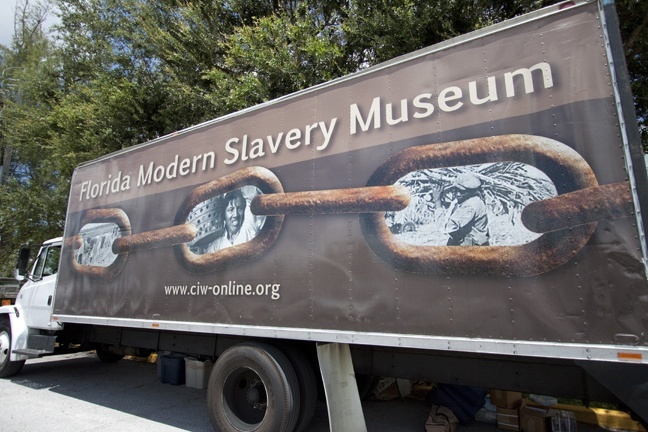
Photographer: ANA RODRIGUEZ-SOTO | FC
The only Mobile Slavery Museum in the U.S., operated by the Coalition of Immokalee Workers, depicts real-life human trafficking and slave labor cases in Florida.
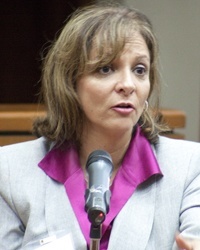
Photographer: ANA RODRIGUEZ-SOTO | FC
Esther Jacobo, regional director for Florida's Dept. of Children and Families, says her agency needs the collaboration of the community to identify and help victims of human trafficking.
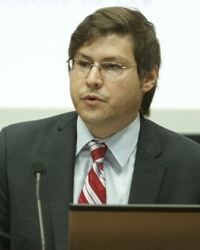
Photographer: ANA RODRIGUEZ-SOTO | FC
Assistant State Attorney Warren Eth says his office is focusing on the prosecution of sexual trafficking.
That includes police agencies and prosecutors, churches and social service agencies, consumers and investors, academics and researchers, cyber trackers and watchful neighbors.
�Government cannot do this alone,� said Warren Eth, assistant state attorney for Miami-Dade County and a member of the county�s Human Trafficking Task Force.
�Collaboration needs to happen for this to be successful,� said Esther Jacobo, regional managing director for the Southern Region of the Department of Children and Families.
�We as investors can really influence human trafficking,� said Lauren Compere, managing director and director of shareholder engagement for Boston Common Asset Management.
�Write to the companies that provide you the products that you use,� said Martina Vandenberg, a fellow at the Open Society Foundations in Washington, D.C. �Really, what matters is pressure from consumers.�
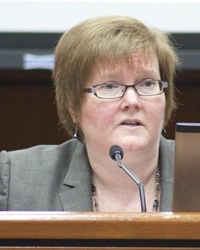
Photographer: ANA RODRIGUEZ-SOTO | FC
Lauren Compere of Boston Common Asset Management works at the corporate level to ensure that businesses do not employ slave labor.
The course took a hiatus July 20 for a day-long cram session that was open to the public. One of the key insights gleaned from the speakers was the broad definition of human trafficking. It encompasses enslavement for cheap labor as well as enslavement for the sex trade, and it does not always occur across national borders or with illegal immigrants.
While law enforcement and the media have focused mostly on victims of sexual exploitation, �over 14 million are in slavery related to labor trafficking,� said Compere, who works at the corporate level to hold businesses accountable. Often that means having investors convince management that a murky labor supply chain is bad for the bottom line, as it exposes the company to lawsuits and bad publicity.
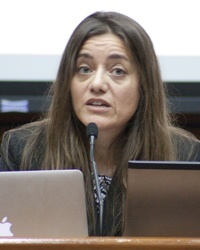
Photographer: ANA RODRIGUEZ-SOTO | FC
Veronica Musa of the Fair Food Standards Council says farm labor remains "among the worst and least protected jobs in this country."
�The labor recruiters are making out like bandits,� said Vandenberg, because they collect fees � often exorbitant ones � from both the people who are seeking jobs and the companies that hire them.
Instances of enslaved labor have been documented not just in public corporations but in the U.S. military as well, she said, leading to �zero tolerance� amendments in the Federal Acquisition Regulation, the rules that govern federal agencies� purchase of goods and services.
The problem of enslaved labor is especially common in agriculture, which is specifically excluded from the Fair Labor Standards Act.
�Farm labor remains among the worst and least protected jobs in the country,� said Veronica Musa, an attorney for the Sarasota-based Fair Food Standards Council.
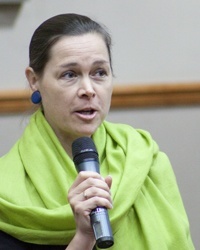
Photographer: ANA RODRIGUEZ-SOTO | FC
Martina Vandenberg, a fellow at the Open Society Foundations, says consumers can ask the companies they patronize about their labor supply chain.
The Fair Food Standards Council is an independent organization that monitors compliance with the Fair Food Program, which in turn grew out of the Coalition of Immokalee Workers� campaign to be paid an extra penny per pound of tomatoes picked. The campaign targets the largest purchasers of Florida�s tomatoes � fast food establishments such as Taco Bell and grocery chains such as Publix � to create upward pressure on prices from the consumer end. That extra penny is then passed on to the farm workers by the growers.
Companies that agree to pay the extra penny also agree to buy only from growers who abide by a code of conduct that explicitly requires them to hire the farm workers directly, not through a labor contractor.
Eth, of the state attorney�s office, said his office�s �primary focus at this point is human sexual trafficking,� which he described as �an acute problem.�
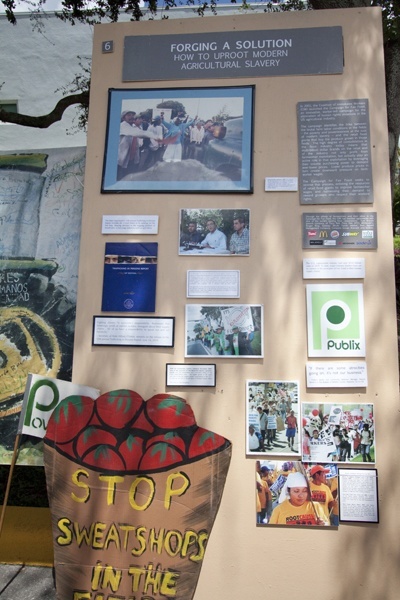
Photographer: ANA RODRIGUEZ-SOTO | FC
The Coalition of Immokalee Workers is asking supermarkets and fast food chains to pay a penny more per pound of tomatoes, a penny which the growers then pass on to the farm workers.
Often prosecutors will find the hard evidence they need in the trafficker�s computer: graphic images of minors engaged in sexual activities. That is where technology helps, making it possible to charge the traffickers and pimps under child pornography laws.
�Runaways are a huge problem. Unfortunately, it takes a community to realize what is going on,� Eth said.
Miami has the highest number of teenage runaways in Florida, Jacobo pointed out. The Safe Harbor Act recently passed by the legislature and signed by Gov. Rick Scott, which goes into effect in January, gives her department a tool for identifying, treating and ultimately releasing exploited children.
In addition, she said, �everybody is a mandated reporter� when it comes to child sexual abuse.
�Trafficking in human beings is modern day slavery,� said Roza Pati, a law professor who directs both the Human Trafficking Academy and St. Thomas Law School�s Intercultural Human Rights program. She called it �a scourge to humanity and a violation of every human right. This phenomenon has to end.�
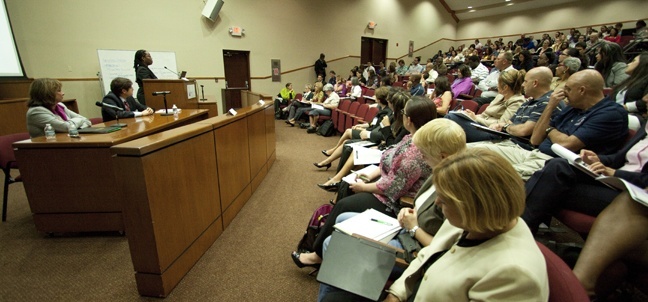
Photographer: ANA RODRIGUEZ-SOTO | FC
St. Thomas University's Human Trafficking Academy held a July 20 seminar for the public as part of two weeks of training, July 16-20 and July 23-27, for first responders, legal professionals and representatives of religious and social service agencies.

